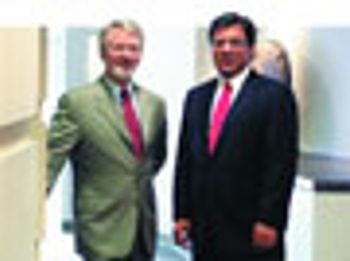
Pharmaceutical Executive
Nektar?the drug delivery firm formerly know as Inhale?has been around for 14 years, but its pace during the last few has been dizzying. In 2001, the company made two major acquisitions that not only expanded its technology base from inhaled therapeutics to a broad range of exciting new technologies, but also gave it revenue from five products on the US market that use its technology and lined-up another four in Phase III. In 2002, Nektar brokered 11 collaborative partnerships, and in 2003, it generated $106 million in sales.

